In celebration of #NutritionMonth, Help Us Provide Life-Saving Aid To Families At-Risk
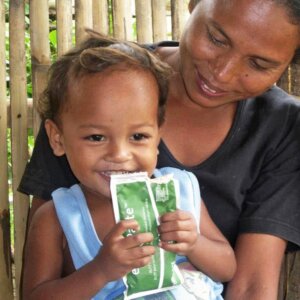

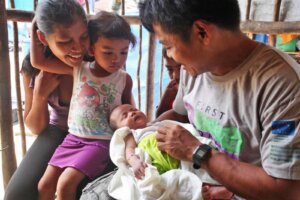
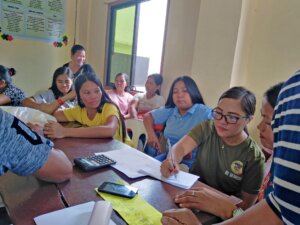
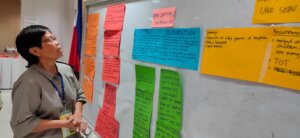
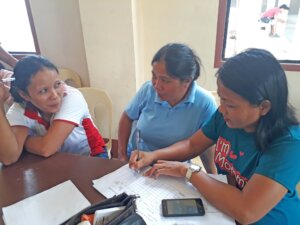
Many Filipinos to this day continue to live in evacuation camps or makeshift homes. These are the people are often forced to leave their homes due to conflict or disasters who until now have not been able to start over. Most have limited job opportunities and struggle to provide for their families.
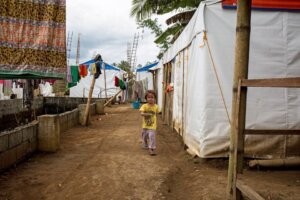
For over 20 years, we have been working all over the country, supporting as many vulnerable families as we can.
𝗛𝗲𝗹𝗽 𝘂𝘀 𝗵𝗲𝗹𝗽 𝗺𝗼𝗿𝗲.
https://actionagainsthunger.ph/call-for-donations
(Photo by Lys Arango for Action Against Hunger)
Did you know that 1 in 10 Filipinos have limited access to safe and reliable water sources?
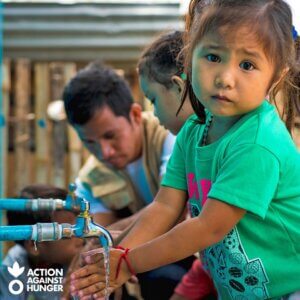
Help us provide these communities with clean and safe water by supporting our WASH programs.
𝗠𝗮𝗸𝗲 𝗮 𝗱𝗼𝗻𝗮𝘁𝗶𝗼𝗻 𝘁𝗼𝗱𝗮𝘆.
https://actionagainsthunger.ph/call-for-donations
#ThrowbackThursday to 2019 when we sat down and talked with one of our beneficiaries during our #MaguindanaoConflict Response.
“We were all panicking and we didn’t know what to do at the time that airstrikes started,” recalled Kautin Bano. “We left around 6 in the morning and evacuated to the nearest health center. When we got there, we had no choice but to wait and observe.”
Kautin Bano, his wife and children, had to leave their home in Barangay Pandi, Datu Salibo on March 11, 2019, Maguindanao due to the airstrikes that occurred in Barangay Inaladan, Shariff Saydona.
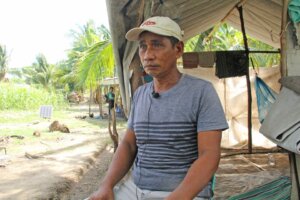
This was not the first time that Kautin and his family were forced to leave their home. Since the 1980s, they had to evacuate several times due to conflicts in the area. With funding from USAID’s Bureau for Humanitarian Assistance, 600 families received emergency aid such as non-food items (NFI), hygiene kits and hygiene promotion sessions through Action Against Hunger Philippines‘ emergency response.
𝗥𝗲𝗮𝗱 𝘁𝗵𝗲 𝗳𝘂𝗹𝗹 𝘀𝘁𝗼𝗿𝘆 𝗵𝗲𝗿𝗲:
https://actionagainsthunger.ph/…/constant-displacement-mag…/
(Photo by Joyce Sandajan for Action Against Hunger)
All over the world, malnutrition continues to rise because of conflicts, climate change and now COVID-19.
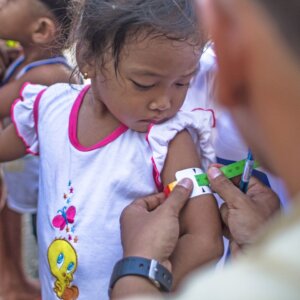
With your support, we can help alleviate hunger and malnutrion by supporting more people to earn incomes so that they can provide food for their families. We can improve access to clean water, good hygiene, and health services, therefore preventing the spread of diseases.
𝗛𝗲𝗹𝗽 𝘂𝘀 𝘀𝗮𝘃𝗲 𝗹𝗶𝘃𝗲𝘀. 𝗗𝗼𝗻𝗮𝘁𝗲 𝗻𝗼𝘄.
https://actionagainsthunger.ph/call-for-donations
(Photo by Daniel Burgui for Action Against Hunger)
Hunger is predictable, preventable, and treatable, however, the pandemic has put even more children at risk of suffering from malnutrition.
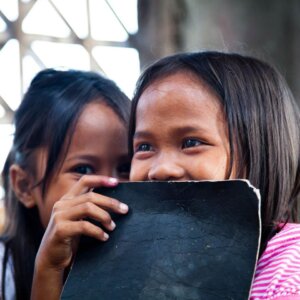
You too can have the opportunity to take action by supporting our nutrition and health programs. Help us enable communities so that children can grow strong and free from hunger.
𝗠𝗮𝗸𝗲 𝗮 𝗱𝗼𝗻𝗮𝘁𝗶𝗼𝗻 𝘁𝗼𝗱𝗮𝘆.
https://actionagainsthunger.ph/call-for-donations
(Photo by Agnes Lavarraine for Action Against Hunger)
How do we fight hunger and malnutrition?
At Action Against Hunger, we educate and support mothers about the importance of breastfeeding for the first six months, and work to improve care and feeding practices. We also train local health care workers and partners to screen and treat undernutrition, and we provide technical expertise and support to strengthen local health systems. These are just some of the components of our nutrition programs.
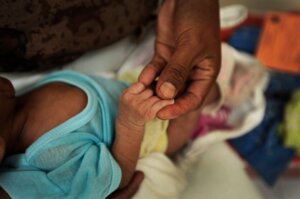
We are constantly scaling up our efforts to prevent hunger, but we need your help now more than ever.
𝗗𝗼𝗻𝗮𝘁𝗲 𝗻𝗼𝘄 𝗮𝗻𝗱 𝗵𝗲𝗹𝗽 𝘂𝘀 𝘀𝗮𝘃𝗲 𝗹𝗶𝘃𝗲𝘀.
https://actionagainsthunger.ph/call-for-donations
(Photo by Alfons Rodriguez for Action Against Hunger)
Prior to the pandemic, our teams distribute hygiene kits and build latrines and hand-washing stations in the communities we work with to prevent outbreaks of diseases during a crisis. In communities at risk, we construct water filters made from basic materials and teach healthy practices like hand-washing, cooking with clean utensils, and drawing water from protected sources.
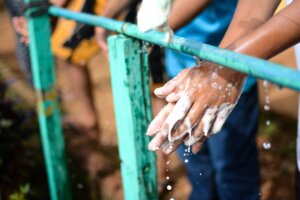
Read more about our WASH projects and find out how you can support us: https://actionagainsthunger.ph/what-we-do/#water-sanitation